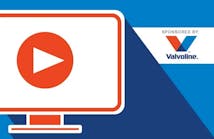It’s no secret: Our economy is in a slump. There. I said it. I said what everyone fears hearing and most of us hate to admit. I’m no economist. So, I’m not going to label it with a fancy name, analyze it, predict how long it will last or anything like that. But I am willing to talk about how to survive — or even thrive in tough economic times.
Basically, you have two choices: Sit back and wait for things to change or stand up and make them change. I don’t think you want to call your creditors to tell them you won’t be paying your bills until the economy recovers. So, I strongly suggest you take the second path and take control of your destiny.
Just this week, my son, P.J., and I shared a tiny slice of leftover chocolate cake for dessert. P.J. was finishing his dinner. As I divided the cake, he watched carefully to be sure I had split the cake fairly. As I ate my half from our shared plate, P.J. actively kept his eye on me — not looking away for a moment. Since the slice was small, the stakes were high, and he was especially guarded. When I teasingly slid my fork over to his half of the dessert plate, he quickly shut me down.
“Hey, Daaad!” he said, guarding his territory. “Watch your fork.”
The economic “chocolate cake” may be smaller, but that doesn’t mean you need to let your competitor eat your fair share. In fact, you should do everything in your power to protect your slice — and even try to get some of your competitor’s slice.
The key to selling more in a bad economy is the same as selling more in a good economy. You have to make more sales. To make more sales, you need to ask for more sales.
That seems obvious, but it’s not easy. It’s hard to ask your customers to buy tools or equipment when you see all the economic signs. However, your mindset often is a bigger hindrance than your customer’s pocketbook.
If you don’t expect your customers to buy tools, they won’t. If you aren’t convinced they should be buying a particular tool, it will be hard to convince them. They’ll sense your unconscious hesitancy in your pauses, your tone of voice and your words.
Economics 101 teaches that the key to nationwide economic stimulus is getting everyone to spend a little more money. This is especially the key to your personal economic stimulus.
A typical sales trainer would say if you want to make more sales, focus on improving your closing techniques. If you’ve read my columns you know I rarely take a typical approach.
I think closing technique is important, but more important is your opening technique. You may know what closing is. But what’s opening a sale?
It’s not an opening line. Lines rarely work. Not in dating, and not in mobile distribution.
“Do you want to see a new tool that will pay for itself in a week?” is the “Don’t I know you from somewhere?’ of the tool dealer.
Opening is about turning the conversation from small talk to tool talk. The best dealers do that as quickly as possible. That’s because your most precious inventory item isn’t hardlines or specialty tools. It’s your time. You can always buy more sockets. But you can never get back lost time. So you can’t afford to waste it on idle chit-chat with someone who isn’t buying from you.
That may sound a little harsh. I don’t mean it that way. I’m not saying you should only be nice to people who are buying from you. But you can be nice without a lot of talking. Just don’t waste time being overly friendly with prospective customers. It doesn’t work. You don’t need a new best friend. Neither do they. You need to make a sale and get to your next stop. They need to get back to work.
A former mechanic recently told me about a mobile distributor (I’ll call him Tim). Tim irritated this tech by just hanging around with nothing to sell. One day, the tech got fed up. He told Tim not to come back. Really. It seems rude, but he was actually being kind. Most techs would just listen politely and never buy from Tim.
You may believe that, over time, small talk can lead to big sales. That rarely happens. Research shows chatting usually leads to more chatting. Tool talk leads to more sales.
Some dealers open by “toting and promoting.” For instance, they carry in a new torque wrench. They show it. They sell it. Good technique.
But in tough times, just showing a new torque wrench will rarely sell one. Even many tool junkies are trying to be more practical. A better sales opening is to ask questions to uncover needs. Ask your techs what kind of repairs they’re seeing more often. If you know what tools would help them, tell the tech about those tools. If not, ask them what tools they wish they had to make the repair easier.
Opening a sale is really about getting your customer to open up.
Don’t wait for your customer to bring up tools. Ask a question. Then ask a follow-up question. Then another. And don’t forget to ask for the sale.
Phil Sasso is president of Sasso Marketing Inc. (www.sassomarketing.com), a technical marketing agency specializing in tools and equipment.

